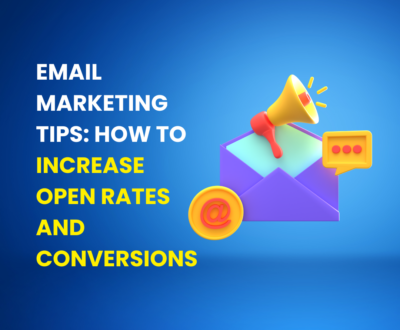The Importance of Analytics in Digital Marketing: How To Track Success
- February 19, 2025
- Uncategorized

In today’s digital landscape, the importance of analytics in digital marketing cannot be overstated. Data plays a vital role in shaping successful marketing strategies. Analytics allow businesses to measure performance, understand customer behavior, and refine campaigns for better results. Without proper tracking, businesses may miss opportunities to optimize their marketing efforts and maximize ROI.
Key Metrics to Track
To track success in digital marketing, it’s essential to monitor key marketing metrics such as:
Website Traffic: The number of visitors to your website and their sources.
Conversion Rate: The percentage of visitors taking a desired action (purchases, signups, downloads).
Bounce Rate: The percentage of users who leave a website after viewing only one page.
Customer Acquisition Cost (CAC): The cost of acquiring a new customer.
Return on Investment (ROI): Measuring revenue generated against marketing costs.
Tools for Analytics
Several tools help track and analyze marketing performance effectively. Some popular options include:
Google Analytics: Tracks website traffic, user behavior, and conversion rates.
SEMrush: Offers keyword tracking, competitor analysis, and SEO insights.
HubSpot: Provides in-depth CRM and marketing analytics to measure campaign effectiveness.
Facebook Insights & Twitter Analytics: Analyze social media engagement and reach.
Setting Up Goals and Tracking Campaigns
Defining clear goals is essential for digital marketing success. Steps to set up and track campaigns include:
1. Define Objectives: Set measurable goals like increasing website traffic or boosting lead conversions.
2. Use UTM Parameters: Track the source of traffic in Google Analytics.
3. Monitor Campaign Performance: Compare actual results with expected goals.
4. Adjust Strategies Accordingly: Optimize underperforming campaigns based on data insights.
Analyzing Social Media Performance
Social media is a powerful channel for reaching audiences, but performance tracking is key. Metrics to monitor include:
Engagement Rate: Likes, shares, and comments per post.
Follower Growth: Increase in audience size over time.
Click-Through Rate (CTR): How many users click on your shared links.
Ad Performance: Conversion rates from social media ads.
Using Data to Optimize Campaigns
Once you’ve gathered insights from digital marketing analytics, you can optimize your campaigns effectively:
Refine Target Audience: Adjust ad targeting based on demographic and behavioral data.
A/B Testing: Experiment with different ad copies, images, and CTAs.
Improve Website UX: Address high bounce rates by optimizing page speed and content relevance.
Optimize Content Strategy: Identify top-performing content and create similar highvalue pieces.
Common Mistakes in Analytics Tracking
To avoid pitfalls in analytics tracking, businesses should: –
Not Rely Solely on Vanity Metrics: Likes and shares are important but don’t always indicate conversions.
Failing to Set Up Proper Tracking: Ensure conversion goals and tracking codes are correctly implemented.
Ignoring Mobile Analytics: Many users access content via mobile devices, so mobile performance must be monitored.
Not Acting on Insights: Gathering data is pointless without taking action based on findings.
Conclusion: Make Data-Driven Decisions
Using digital marketing analytics is essential for optimizing campaigns and maximizing results. By tracking the right marketing metrics, utilizing analytics tools, and avoiding common mistakes, businesses can make informed decisions that drive success. Start leveraging data today to enhance your marketing efforts and stay ahead of the competition.
Mobile Marketing: How to Reach Customers on the Go: click here.
The Importance & Benefits of Analytics in ‘Digital Marketing: click here








